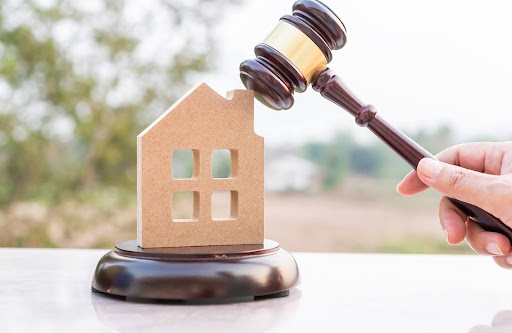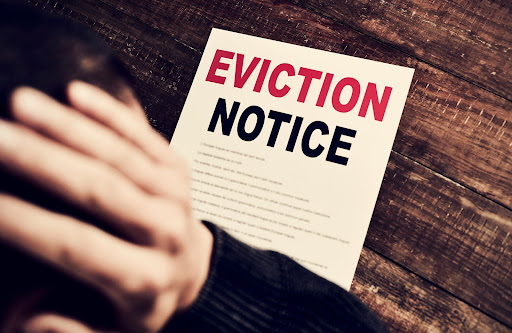Part of the homeowners association’s responsibilities is properly enforcing rules and regulations. When dealing with delinquent residents, the HOA may impose some form of punishment. But can HOA evict you as a homeowner if you break the rules?
HOA Enforcement Actions
When living in a HOA community, residents agree to a set of governing documents that lay out the rules and policies in the community. Of course, having rulebreakers in a neighborhood is challenging to avoid. However, to improve compliance and discourage delinquencies, HOAs resort to enforcement actions. Here are some of the most common ones:
Fines
A fine is a monetary penalty imposed on homeowners who violate HOA rules. This is arguably the most common form of enforcement action many HOAs mention in their governing documents. It aims to discourage residents from breaking the rules, but in cases of repeated violations and unpaid fines, the association may escalate and resort to more serious enforcement actions.
Liens

The homeowners association can place a lien on the property for repeated offenses. Simply put, a lien is a legal claim against the property, making selling or refinancing it more difficult. As a form of enforcement action, it helps the HOA ensure that it can recover the owed amount before any monetary transaction is made with the said property.
Foreclosure
One of the most severe enforcement actions an HOA can take is foreclosure. This is usually only done as a last resort in the worst cases. However, whether and how an HOA can initiate foreclosure proceedings depends on state legislation.
Eviction vs Foreclosure
Many tend to be confused about eviction and foreclosure, but they’re essentially different things. On one hand, eviction is usually an enforcement action that landlords do to remove tenants who fail to pay rent or violate lease agreements.
Meanwhile, a foreclosure involves the legal process of repossessing a property when the homeowner fails to meet financial obligations, such as association dues and fees in an HOA. Unlike eviction, foreclosure affects property owners, not tenants, and can result in the homeowner losing their property entirely.
Understanding this distinction is critical when discussing an HOA’s ability to enforce its rules. While HOAs cannot evict homeowners in the traditional sense, they may initiate foreclosure proceedings under specific circumstances.
Can an HOA Evict a Homeowner?
Can the HOA evict you if you own the house? Technically, the HOA can’t directly evict a homeowner, as this action is typically taken by landlords against tenants. However, depending on the state, the association can still pursue legal action that can result in the homeowner losing their property.
But can HOA kick you out of your house? While this question points to an eviction, calling this a foreclosure might be more appropriate. Foreclosure happens when an HOA uses its legal rights to recover unpaid dues or enforce liens on the property. In extreme cases, this could result in the sale of the home.
State laws dictate the foreclosure process, and they vary from state to state. In some states, homeowners associations can foreclose on a property non-judicially or without court approval. However, in Florida, HOAs can foreclose on properties with assessment liens through the court. This means HOAs in Florida can only file a foreclosure complaint and ask the court to order the foreclosure of the lien they have placed.
Can HOA Evict You If Your House Is Paid Off?
Having a fully-paid home does not exempt you from HOA enforcement actions. Of course, if you own your home, your HOA still can’t “evict” you. Still, if the state allows it to initiate foreclosure proceedings, especially when you have numerous offenses and repeated delinquencies.
Of course, the HOA will not immediately start foreclosure proceedings. Usually, before that point, the association should have exhausted all other enforcement actions, including imposing fines or placing a lien on the property.
Can HOA Evict You If You are a Tenant?
Can the HOA evict you if you’re a tenant leasing a home in a HOA community? In this case, the HOA can’t evict you as a tenant, even if you do not pay dues or fees. Again, the process involves tenants and landlords, not HOAs.
When homeowners rent out their property to others, they also become responsible for their tenant’s actions. This, of course, includes delinquencies and rule violations. If the tenants do not follow the HOA’s rules, the HOA doesn’t have the authority to evict them, but the homeowner does.
Legal Protections for Homeowners
There are cases when the punishment of a foreclosure is too harsh for the actual violations done. When they seem to be unjust, homeowners are not without recourse. State and federal laws provide protections against unfair HOA practices.
One example is the Fair Debt Collection Practices Act (FDCPA). This federal law safeguards homeowners by banning abusive, deceptive, or unfair practices for debt collection. HOAs or their collection agencies must follow strict guidelines when pursuing unpaid dues, including clear and documented communication.
In addition, many states have enacted statutes regulating HOA foreclosure practices. These laws often require a series of notices and opportunities for homeowners to resolve issues before foreclosure. These laws provide additional layers of protection, especially in states with stringent judicial foreclosure requirements.
Homeowners facing foreclosure should thoroughly review their rights under these laws and seek legal counsel to ensure fair treatment and proper adherence to due process.
How to Avoid HOA Enforcement Actions

You can avoid breaking the rules by keeping up with your responsibilities as a homeowner in an HOA community. Here are a few tips that can help homeowners stay in good standing with their HOA:
- Pay Dues on Time: Timely payment of HOA fees is crucial to avoid penalties or legal actions. Even minor delays can escalate into more considerable financial burdens if fines and interest accrue, so staying ahead of deadlines is essential.
- Understand the Rules: Familiarizing yourself with the CC&Rs prevents unintentional violations. Understanding the specific guidelines of your community can help you make informed decisions about property modifications, landscaping, and other activities.
- Communicate: Open communication with the HOA is vital, mainly if financial hardships arise. If approached proactively, many HOAs will work with homeowners to establish payment plans or temporary waivers.
Staying in Control
While HOAs have the authority to enforce rules, their power has limits. Staying informed and proactive can help homeowners maintain control and avoid severe consequences. By understanding your rights and responsibilities, you can ensure a harmonious relationship with your HOA.
If you need help enforcing rules in your community, Freedom Community Management provides HOA management services. Call us at 904-490-8191 or contact us online to learn more!


